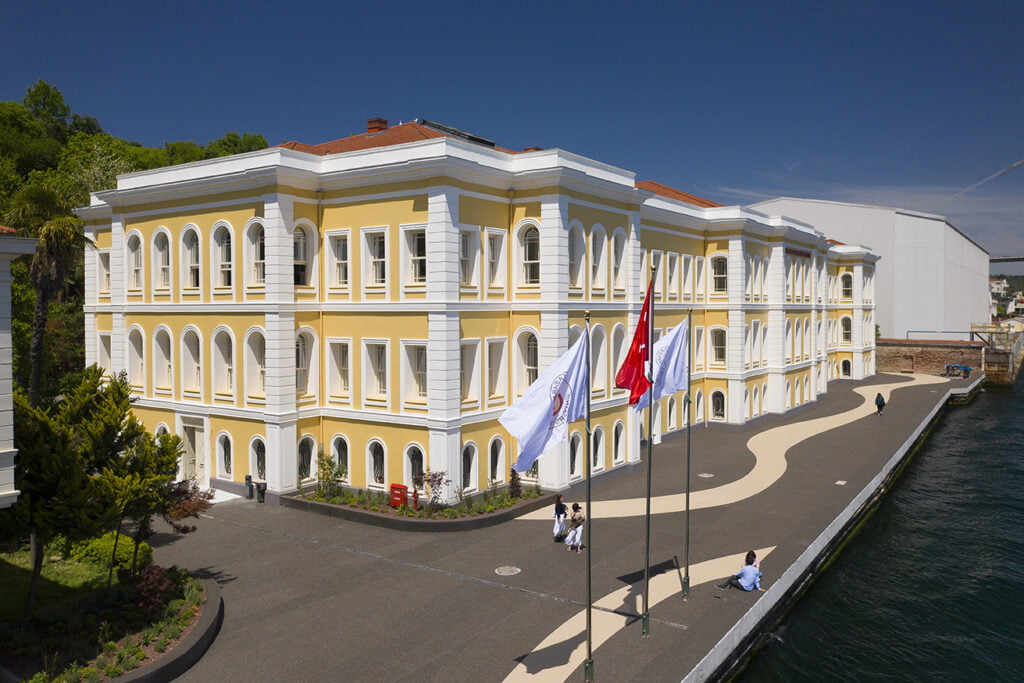Traveling to Turkey offers a vibrant tapestry of experiences, but being aware of cultural differences is crucial for a smooth journey. Understanding Turkish culture can make a significant difference in how you connect with locals and enjoy your stay. Did you know that hospitality is a cornerstone of Turkey’s social fabric? Embracing this tradition can open doors to warm interactions. Turkey cultural etiquette often dictates a slower pace in social settings, so patience is key. It’s also important to know that a nod or a smile holds more weight here than a quick handshake. Turkey travel tips, such as acknowledging personal space and being courteous in public, can go a long way. As you dive into the rich, historical streets, remember these pointers. Whether you’re sipping tea at a local café or exploring ancient ruins, being mindful of these subtleties enriches your adventure and leaves lasting impressions.
Navigating Turkish Etiquette: Essential Tips for Travelers
Navigating Turkish etiquette can feel like wandering through an intricate labyrinth, but grasping a few cultural nuances makes a world of difference. First, understanding Turkish culture is key—respect and hospitality are deeply valued, and keeping this in mind helps in social interactions. A warm greeting with eye contact speaks volumes in Turkish social settings. Remember, patience isn’t just a virtue; it’s part of Turkey’s cultural DNA. While traveling to Turkey, you might notice that conversations flow like the Bosporus, not hurried but thoughtfully paced. One of the most vital Turkey travel tips is respect for personal space; it’s subtle but significant. As you engage with locals, offering a genuine smile can be more welcoming than words. Also, be aware of Turkey cultural etiquette like removing shoes before entering homes—these small gestures convey respect and foster harmony. Embrace these tips and see how they transform your experience.
In restaurants or family homes, understanding Turkish culture involves observing dining customs. For starters, it’s customary to wait and let the host initiate the meal, showing respect and patience. When traveling to Turkey, you’ll find that sharing food is a sign of friendship, so don’t shy away from trying a bit of everything offered. As part of Turkey cultural etiquette, remember to compliment the food—it’s not just polite, it’s expected. Another of these essential Turkey travel tips is the power of tea—served in small tulip-shaped glasses, it’s more than a drink; it’s a cornerstone of social gatherings. Accepting a cup is akin to accepting a warm invitation, a gesture that speaks louder than words. Lastly, be prepared to remove your shoes before entering a Turkish home. It’s a small token of respect that goes a long way in understanding these subtle cultural differences.
Understanding cultural differences in Turkey extends to everyday situations, like shopping or using public transport. When traveling to Turkey, you might discover that bargaining in markets is part of the fun, reflecting Turkish culture’s engaging vibe. Don’t be shy—politely negotiating prices is common. Another key tip: punctuality isn’t as rigid here as in some cultures, so keep a flexible schedule. On public transport, offering your seat to elderly passengers is not just a courteous gesture but a revered aspect of Turkey cultural etiquette. As you journey through Turkey, observe how attentiveness and modesty in dress code, especially when visiting religious sites, opens up respect and connection. Turkey travel tips such as dressing appropriately and using simple phrases in Turkish to express gratitude like “teşekkür ederim” (thank you), enrich interactions. Embracing these nuances paves the way to more meaningful exchanges and deeper appreciation of Turkey’s vibrant culture.
Understanding Regional Diversity: Insights into Turkish Culture
Turkey is a vast mosaic, where each region boasts its own unique charm and peculiarities. Understanding Turkish culture means recognizing these cultural differences in Turkey that make each area special. From the bustling metropolises of Istanbul and Ankara to the tranquil towns nestled in the Aegean, every corner tells its own story. The food shifts flavor across regions, just as dialects add color to conversations. Imagine sipping tea in the east, where the ritual feels like an unhurried art. Traveling to Turkey, you’ll notice that the hospitality varies, but kindness is a common language. When exploring the local traditions, patience and curiosity become your best guides. Turkey cultural etiquette is like an ever-changing landscape, where gestures and customs adapt. As you weave through this tapestry, these Turkey travel tips should help you navigate seamlessly. In understanding Turkish culture, you unlock a treasure trove of human connections and authentic experiences.
Diving into Turkey’s regional diversity offers a panorama of distinct customs and perspectives. Each region introduces its own slice of magic, enhancing your journey with rich cultural differences that capture the heart of Turkey. In the eastern Anatolian expanse, life beats at a different rhythm, where storytelling around a fire is cherished. Meanwhile, the Aegean’s breezy coastline echoes with tales of ancient civilizations. These contrasts are a testament to the country’s complex tapestry. When traveling to Turkey, insights into these traditions reveal profound shifts in cultural etiquette. For instance, you’ll find that formality in greetings in the north contrasts sharply with the casual warmth of the south. Turkey travel tips often highlight the importance of understanding these nuances, as they can transform a simple visit into a memorable cultural exchange. Exploring Turkey’s varied regions equips you with a deeper understanding of Turkish culture, making each discovery more vivid and meaningful.
Journeying through Turkey’s varied landscapes exposes you to an array of cultural differences that enliven your travels. Picture yourself wandering the streets of Istanbul, where modernity meets tradition, creating a dynamic backdrop for exploration. Here, Turkey cultural etiquette often involves a mix of old and new, with bustling bazaars inviting haggling in a respectful dance. Venture southeast, and you’ll find the culinary traditions rich with spices that tell stories of history and community. These flavors offer a lens into understanding Turkish culture, as they signify more than just taste—they reflect the heart of each region. Turkey travel tips suggest engaging with locals at these markets to learn firsthand about their customs. Meanwhile, traveling to Turkey’s serene Black Sea region presents another facet, where tea-filled conversations by the shoreline bring new friendships. Every interaction, every discovery deepens your appreciation for the cultural diversity that makes Turkey an alluring mosaic.
Key Customs and Traditions That Shape Turkish Society
Turkey’s rich customs and traditions are a mosaic reflecting its deep-seated history. One of the most charming aspects of understanding Turkish culture is the tradition of hospitality, which is more than just a gesture; it’s a social obligation. When traveling to Turkey, be prepared for the warm embrace of local hospitality, often signified by being offered tea, a symbol of friendship. Furthermore, Turkey cultural etiquette often highlights the importance of family and community. Birthdays and religious holidays are celebrated with gusto, where gatherings turn into feasts. Respect for elders is paramount, often dictating seating arrangements and order of greetings. Another intriguing aspect is the adherence to personal space in social interactions, a subtle dance of respect and friendliness. Turkey travel tips suggest recognizing these nuances can boost your interactions and enrich your experiences. By embracing these traditions, you not only blend in but stand out as someone who appreciates the depth of cultural differences in Turkey.
Cultural differences in Turkey often shine through its unique customs that can captivate any traveler. An essential part of understanding Turkish culture is acknowledging the significance of tea, served in delicate, tulip-shaped glasses, renowned as a must-have in gatherings. Expect to feel right at home, as it’s customary for hospitable Turks to invite you for a glass or two. Delving deeper into Turkey cultural etiquette, you’ll find that public displays of affection are often reserved, highlighting a quiet respect woven into social interactions. While traveling to Turkey, you’ll witness a colorful tapestry of rituals; from lively engagement parties to solemn religious ceremonies. These events often showcase an intricate dance between tradition and modernity. Taking note of such customs is a vital Turkey travel tip, facilitating not only smoother social exchanges but also offering insights into the country’s rich heritage. By valuing these traditions, you enrich your understanding and experience in this fascinating country.
Exploring cultural differences in Turkey means diving into a world where customs are both fascinating and unique. Understanding Turkish culture involves grasping the importance of the Turkish handshake, firm yet gentle—a reflection of mutual respect. Delve into Turkey cultural etiquette, and you’ll notice the significance of removing shoes before stepping into a home, symbolizing cleanliness and respect for personal spaces. Public courtesy is paramount, as you’ll discover when traveling to Turkey. Turkey travel tips remind you to greet with a warm “Merhaba” or a respectful nod. As night falls, the streets echo with the rhythmic beats of folk dances at local festivals, a lively display of the country’s vibrant cultural heritage. Embracing these traditions offers a deeper connection with the local community and enriches your journey. From understanding the nuances of cultural differences in Turkey to engaging wholeheartedly with its traditions, each step unveils a tapestry of experiences waiting to be cherished.
Disclaimer: This article is for general informational purposes only and you are strongly advised to consult a professional to evaluate your personal situation. No liability is accepted that may arise from the use of the information in this article.







